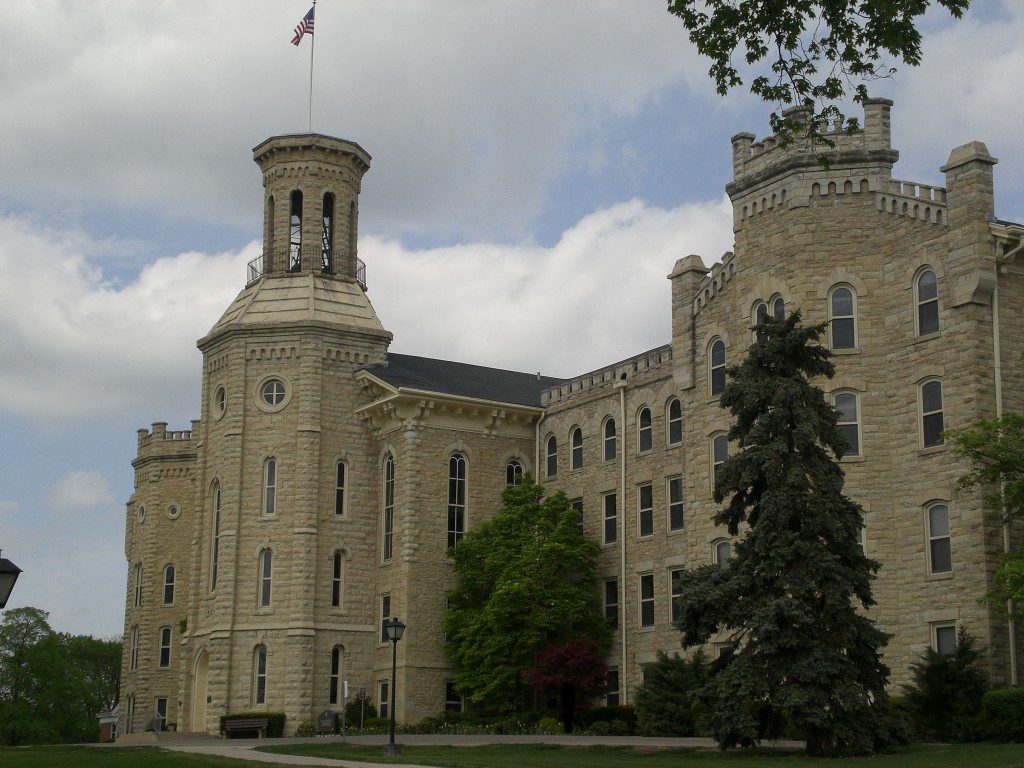By John Scanzoni.
Christianity Today editor Mark Galli observed that the dispute between Wheaton College and Professor Larycia Hawkins should be resolved through “careful parsing.” He’d hoped that thinking through core biblical issues would enable the parties to arrive at an accord permitting Hawkins to remain on the faculty and the College to maintain its integrity. The eventual resolution, however, was the parties going their separate ways.
Prior to enrolling at Wheaton I was fundamentalist. Fundamentalists are Christians typically wary of parsing scripture lest they cogitate “too far and fall off the deep end.” But at Wheaton, I encountered evangelicals—Christians not suspicious of critical thought. Quite the contrary, they saw it as one means to nurture their faith and make Christianity relevant, and I morphed into being evangelical. My most vivid recollection of Wheaton is energetic professors coaching eager students on the fine art of parsing; rethinking became a mind-set we applied not only to course topics, but to matters of faith and practice in general. If we carried our critical analyses “too far,” others might accuse us of assaulting the inerrancy of scripture or, worse yet, question whether we were truly “saved” and thus in peril of hell. But we’d gotten hooked on the “wine of the mind,” as one prof characterized it, and kept on parsing.
Periodically, a prof admitted s/he made the administration’s “suspect-faculty” list because of something said in class that didn’t quite mesh with scripture “but,” they impishly assured us, “my job is safe because donors haven’t heard of it.” Then and now—as Hawkins’s case illustrates—the key to a Wheaton prof’s employment is, first, how far does their parsing stray from scripture and, second, if it does stray “too far” is it shielded from outsiders?
Bernard Ramm’s 1955 The Christian View of Science and Scripture was an early example of evangelicals doing creative parsing to make faith relevant to society. Ramm was among that cohort of post-WWII scholars who grew up fundamentalist, earned graduate degrees at elite institutions, made parsing a way of life, and discarded the label fundamentalist in favor of “evangelical.” The larger society viewed fundamentalists as obscurantist because of their biblical literalism, and educated evangelicals were on mission to rethink scripture to demonstrate that Christian faith is intellectually compelling. (See Smith’s Christ and the Modern Mind, 1972.)
Unlike fundamentalists, who typically viewed science as antithetical to scripture, Ramm parsed scripture aggressively to support his thesis that Christianity and science are compatible. But theologian James Barr alleged that Ramm had in fact “twisted… the biblical material… to bring it into accord with science” (James Barr, Fundamentalism, 1977; italics added). Most fundamentalists and some evangelicals concurred, angrily charging that Ramm carried his parsing way too far; his “twisting” bordered on assaulting biblical inerrancy. There seems little doubt that had Ramm been a Wheaton prof, he would have been fired, but students would have loved him and been excited by his challenges to Received Wisdom. They would have been on his side and so would faculty—just as many Wheaton students and faculty today voiced their support for Hawkins.
The risks of parsing “too far” were on my mind when, after graduate school, Wheaton invited me to join their sociology faculty. I was uneasy during my recruiting visit, and it struck me that the feature I’d loved most about Wheaton was the thing that could get me fired and so, reluctantly, I declined their invitation. My intuition was later vindicated when I presented a paper parsing abortion at a Christian conference, and experienced what “suspect” Wheaton professors must suffer. During the Q&A, an evangelical theologian called my faith into question and accused me of vitiating scripture because of my “prochoice” conclusions. His vitriol brought tears to my eyes, a painful experience indeed.
During the years since graduation, I’ve encountered other Wheaton alumni and mused with them on how exhilarating it was to learn to think and thus escape the stultifying confines of fundamentalism. Nonetheless, we reminded ourselves that thinking can be perilous because, sooner or later, what’s to prevent us from asking why, having come this far on our spiritual journey, we should stop now? Having morphed beyond fundamentalism, is it inconceivable that we might perhaps cogitate “too much” and start morphing beyond evangelicalism? Eventually, I myself undertook that spiritual journey, morphing into “post-evangelical” or “progressive person of faith.” Several other alumni acknowledged they’re on the same path; but I’ve also met a few others who’ve edged beyond faith into quite a different place altogether—agnostic.
Fast-forward to the 2010s and, among younger evangelicals like Hawkins, parsing is seen as more urgent than ever before. Rethinking scripture in the interest of social justice, as did Hawkins, is now an irresistible passion among younger evangelicals—a necessity as insistent as breathing.
Deborah Jian Lee captures that passion in Rescuing Jesus: How People of Color, Women & Queer Christians are Reclaiming Evangelicalism. Lee describes evangelicals struggling to balance biblical inerrancy with the demand to recast the social issues cited in her book’s title. Intriguingly, Lee acknowledges that she herself is now morphing beyond evangelicalism. Reading between the lines, I sensed that a major impetus for her journey is weariness and frustration over endlessly “twisting” scripture while attempting futilely to mesh the complexities of race, gender, and homosexuality with the doctrine of inerrancy. Like many post-evangelicals, Lee evidently concluded she could more effectively engage those and other problematic issues simply as a person of faith.
Analogous to the characters in Lee’s book, Hawkins pushed the parsing envelope but, unlike my professors and, I suspect, a number of her colleagues, Hawkins went public. She did not, apparently, foresee the vitriol from the constituency alleging she’d “twisted” scripture way too far. Hence, it seems fair to ask whether Hawkins might now be pondering whether, like Lee’s characters, to continue pursuing social justice within the evangelical pale or, like Lee herself and others of us, to seek justice within an alternative venue. Stay tuned.
 John Scanzoni received his B.A (sociology) from Wheaton College and his Ph.D. (sociology) from the University of Oregon. He was on the faculty at Indiana University-Bloomington, and at University of North Carolina-Greensboro, and is currently Professor Emeritus of Sociology and Criminology & Law at University of Florida-Gainesville. He has published a number of books, the most recent of which is a critique of the Religious Right from the standpoint of contemporary social science data and theory (Healthy American Families—a Progressive Alternative to the Religious Right, Praeger/2010). Among his many articles are those connecting insights from social science with current religious and social issues—the most recent of which is “A Bump on the Path towards Rare Abortions” (Best Thinking Digest, 20 December 2015).
John Scanzoni received his B.A (sociology) from Wheaton College and his Ph.D. (sociology) from the University of Oregon. He was on the faculty at Indiana University-Bloomington, and at University of North Carolina-Greensboro, and is currently Professor Emeritus of Sociology and Criminology & Law at University of Florida-Gainesville. He has published a number of books, the most recent of which is a critique of the Religious Right from the standpoint of contemporary social science data and theory (Healthy American Families—a Progressive Alternative to the Religious Right, Praeger/2010). Among his many articles are those connecting insights from social science with current religious and social issues—the most recent of which is “A Bump on the Path towards Rare Abortions” (Best Thinking Digest, 20 December 2015).













